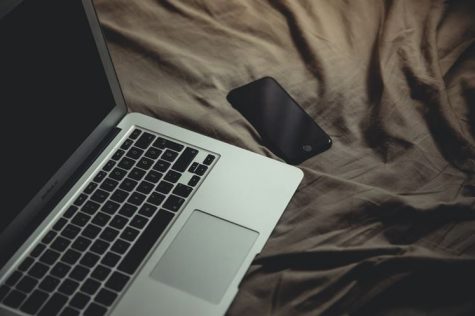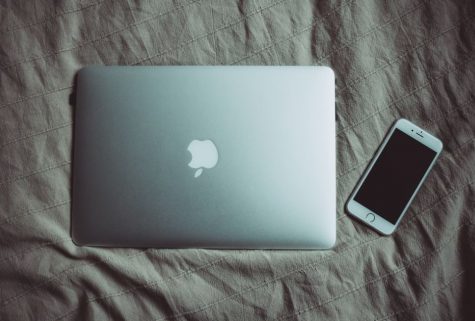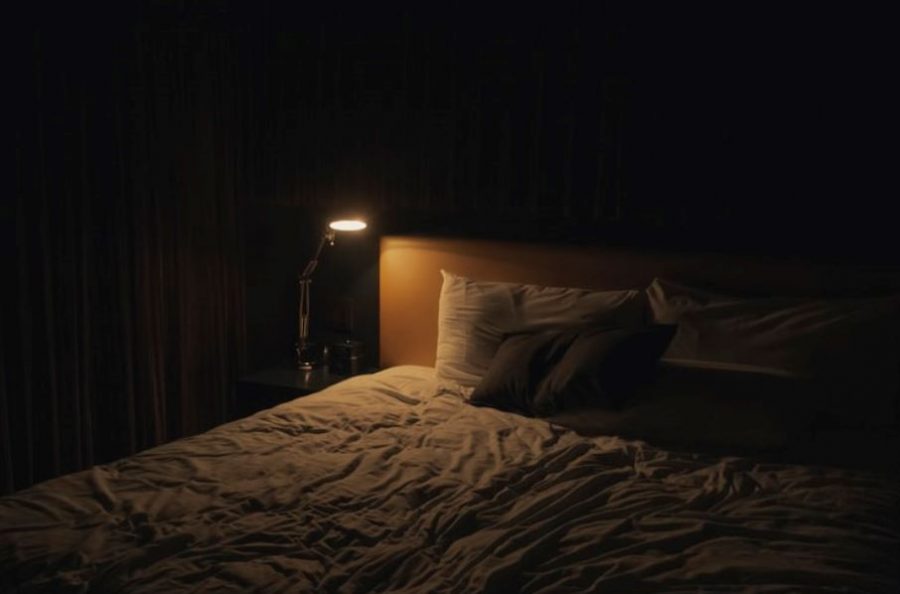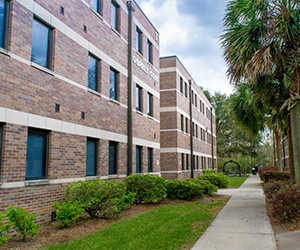Sleep deprivation is no stranger to college students and is surely detrimental to your health. With remote classes and extra free time, students may have been getting much more sleep, but some may also be replacing that extra time with screen time.
Our phones can be quite hypnotic, as some adolescents spend hours scrolling through Tik Tok, or streaming YouTube videos, not realizing that it’s already 3a.m.
Now that many students don’t have to make an early morning commute to classes, they have an excuse to stay up late – or stay up even later than they would before the pandemic. However, phones and computers aren’t the only reason students might not be getting enough sleep.

Spinnaker asked Ashley Ballard, a UNF local health education coordinator, a few questions about sleep.
Spinnaker: Why do college students always have a hard time wrestling with sleep habits?
“Getting a good night’s rest in college can be very difficult,” says Ballard, “There are several factors that could play a role, such as struggling with a new environment, stress, maintaining good grades, emotions, social media and technology, time management, and pulling ‘all-nighters.’”
Spinnaker: Is snoring bad?
“Snoring is very common and is normal for most individuals. However, in some cases snoring can come from several health issues including abnormal anatomical structure of the nose and/or throat, and upper respiratory illnesses,” says Ballard, “If an individual experiences symptoms, such as daytime drowsiness, chest pain at night or even gasping for air while sleep, it is best to follow-up with their general practitioner.”
Spinnaker: What are the health benefits of sleep?
“There are countless benefits to getting enough sleep,”Ballard explained, “According to the U.S. Department of Health and Human Services, sleep helps individuals get sick less often, stay at a healthy weight, lowers your risk for serious health problems like diabetes and heart disease, reduces stress, and improves your mood.”
Spinnaker: How can students work on better sleeping habits?
These tactics can help students develop better sleep habits, according to Ballard:
- Eliminate interferences to your down time.
- Initiate the “Do Not Disturb” setting on your phone.
- Cover light from alarm clocks – blue light at night actually disrupts the body’s biological clock.
- Don’t watch TV or check your phone 45 – 50 minutes before bed.
- If you’ve got a lot on your mind, write it down in a journal not your phone.
- Read a book or take a warm bath/shower before bed (relax).
- Have a warm, caffeine-free beverage before bed.
- Don’t exercise right before bed.
The Mayo Clinic also has a few tips to help you slumber.
Establishing and sticking to a regular bed-time is the first step to sleep-behavior change. Sleeping less than seven hours a night can correlate with weight gain, diabetes, high blood pressure, and depression – so putting down your phone to sleep longer can surely improve your health.
In the study titled,“Perils and promise for child and adolescent sleep and associated psychopathology during the COVID‐19 pandemic,” published by The Association for Child and Adolescent Mental Health (A.C.A.M.H.), research suggests that “the potential for sleep problems to emerge or worsen during this period is high. This may be particularly true for children and adolescents, for whom developmental changes impacting sleep are rapidly occurring (such as those transitioning into adolescence) and for those who are at heightened risk for the onset of sleep and mental health disturbances.”
The study also found that some youth experience improved sleep during the pandemic. Since less time is spent traveling to and from campus, or doing in-person social activities, people may be able to maintain a schedule aligned to their circadian rhythm. Your circadian rhythm is your natural cycle of physical and mental activity that affects sleep and other bodily functions – it is often called “the body’s clock.”
The pandemic has affected sleep in many ways, but your phone might have been taking a toll on your slumber for a while.
Too much exposure to blue light -light emitted from technology screens- can make it difficult to sleep, according to the American Academy of Ophthalmology (A.A.O.). Most people blink less when looking at screens, which causes dry eyes and eye strain.

During the day, blue light can be beneficial because it boosts attention and mood, but after sundown blue light seems to be more disruptive, according to the Harvard Medical School. Light exposure suppresses the secretion of melatonin, a hormone secreted by the pineal gland in the response to darkness, and linked to the regulation of circadian rhythms. Even dim light can combat someone’s circadian rhythm and melatonin secretion.
“A mere eight lux—a level of brightness exceeded by most table lamps and about twice that of a night light—has an effect,” explains Harvard sleep researcher, Stephen Lockely. “Light at night is part of the reason so many people don’t get enough sleep, and researchers have linked short sleep to increased risk for depression, as well as diabetes and cardiovascular problems.”
Technology at night can be detrimental for sleep, but tech is needed way more often now because of the pandemic – so how can we keep up with our life online while maintaining a healthy sleep schedule?
If you’re sleeping well during the pandemic, that’s great – but if sweet dreams don’t come as easily, perhaps blue light filter apps, decreasing screen-time right before bed, and the many tips listed above can help you doze off a little easier.
__
For more information or news tips, or if you see an error in this story or have any compliments or concerns, contact editor@unfspinnaker.com.

















